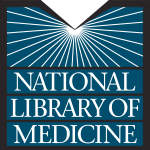- Industry: Library & information science
- Number of terms: 152252
- Number of blossaries: 0
- Company Profile:
The National Library of Medicine (NLM), on the campus of the National Institutes of Health in Bethesda, Maryland, is the world's largest medical library. The Library collects materials and provides information and research services in all areas of biomedicine and health care.
A type of herpesvirus that causes chicken pox. After initial infection with varicella zoster virus (VZV), the inactive (latent) form of the virus can remain in the body. If the latent virus becomes active again, it can cause shingles.
Industry:Health care
A type of herpesvirus that causes Kaposi sarcoma. Kaposi sarcoma herpesvirus (KSHV) is primarily transmitted through genital fluids and saliva. Most people infected with KSHV do not develop Kaposi sarcoma. In people with weakened immune systems, including people with HIV, the viral infection is much more likely to advance to Kaposi sarcoma than in people with healthy immune systems.
Industry:Health care
A type of herpesvirus that causes Kaposi sarcoma. Kaposi sarcoma herpesvirus (KSHV) is primarily transmitted through genital fluids and saliva. Most people infected with KSHV do not develop Kaposi sarcoma. In people with weakened immune systems, including people with HIV, the viral infection is much more likely to advance to Kaposi sarcoma than in people with healthy immune systems.
Industry:Health care
A type of herpesvirus that infects B lymphocytes (B cells). Epstein-Barr virus (EBV) infection is usually asymptomatic but may cause mononucleosis (“mono”). In people with suppressed immune systems, EBV is strongly associated with certain cancers, including Burkitt lymphoma, oral hairy leukoplakia, and nasopharyngeal carcinoma.
Industry:Health care
A type of HIV antibody test used to screen for HIV infection. A rapid HIV antibody test can detect HIV antibodies in blood or oral fluid in less than 30 minutes. A positive rapid HIV antibody test must be confirmed by a second, different antibody test (a positive Western blot) for a person to be definitively diagnosed with HIV infection.
Industry:Health care
A type of HIV treatment failure. The occurrence or recurrence of an HIV-related complication, usually an AIDS-defining condition, after 3 months of antiretroviral therapy (ART) is considered clinical failure.
Industry:Health care
A type of HIV treatment failure. There is no consensus on the definition of immunologic failure. However, some experts define immunologic failure as the failure to achieve and maintain adequate CD4 counts despite viral suppression.
Industry:Health care
A type of HIV treatment failure. Virologic failure occurs when antiretroviral therapy (ART) fails to suppress and sustain a person’s viral load to less than 200 copies/mL. Factors that can contribute to virologic failure include drug resistance, drug toxicity, and poor treatment adherence.
Industry:Health care
A type of hypersensitivity reaction that results from interactions between a drug and the immune system. During a primary immune complex reaction, antigens and antibodies clump together to form immune complexes. These immune complexes then damage body tissue. This rare but serious drug reaction can occur with use of certain antiretroviral (ARV) drugs.
Industry:Health care
A type of immune cell that enables a T lymphocyte (T cell) to recognize an antigen and mount an immune response against the antigen. Antigen-presenting cells (APCs) include macrophages, dendritic cells, and B lymphocytes (B cells).
Industry:Health care
